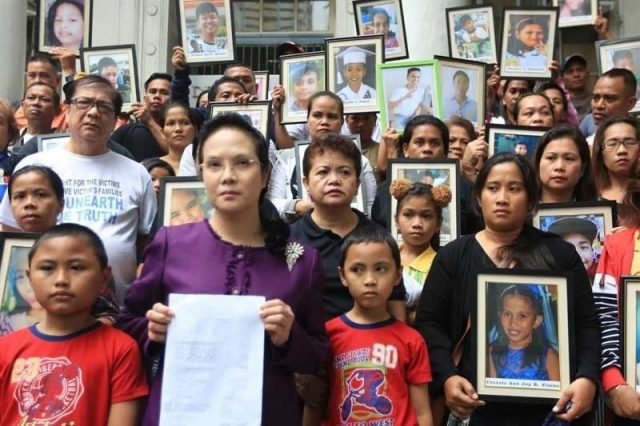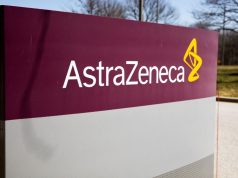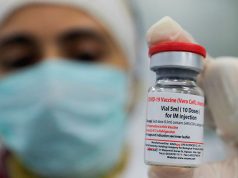
The consequences of the Dengvaxia controversy resurfaced following reports that vaccine manufacturers also fear to encounter the same liability.
The national government previously stated that vaccine brands Pfizer-BioNTech and AstraZeneca, both of which have also been approved for emergency use, will arrive in the country this February.
The first batch of Sinovac, which emergency use authorization application is still pending, is also supposed to arrive on the same month.
It turns out, however, each vaccine manufacturer still requires an indemnity law or agreement signed by the Philippines first, according to vaccine czar Carlito Galvez Jr.
Galvez puts this missing key measure at fault behind the delay of the rollout of the vials in the country.
Under an indemnification program, governments in the world agree that the COVAX global facility, along with the pharmaceutical companies, will not be held liable for any untoward events.
While this is risky, such deal is the only way governments can have their constituents immunized for added protection against the virus which causes COVID-19.
In a briefing last February 17, Galvez noted that vaccine companies worry may have stemmed from the country’s past experiences with the Dengvaxia vaccine.
“So, iyon po ang hinihingi ng mga manufacturer kasi nakita po natin napakalaki ng takot ng mga manufacturers sa Dengvaxia na nakita na iyong Sanofi po hinabla po ng ano po natin dahil kasi po nagkaroon po tayo ng tinatawag na pagkakamali na hindi po natin nailagay iyong tinatawag na informed consent at saka po iyong tinatawag po nating wala po tayong law o agreement na nagbibigay ng proteksiyon sa mga manufacturers,” he said.
Sen. Sonny Angara also said this major obstacle was not raised during the 2021 budget deliberations.
Galvez also only informed the Senate about the necessity of this legislation last January.
Renewed criticisms
Some Filipinos expressed their renewed ire at Public Attorney’s Office chief Persida Acosta, who allegedly sparked the vaccine scare that consequently affected the low vaccination rate of the country.
Acosta and her forensics team conducted their own autopsies on at children who took jabs of Dengvaxia, an anti-dengue vaccine, and insisted the vaccine is directly linked to their deaths without no strong evidence in 2018.
The lawyer launched this investigation after the Department of Health, the company who developed it, suspended the dengue immunization program in 2017 due to new guidelines from Sanofi, the vaccine’s developer.
These incidents then caused public outcry and fear among parents who are now hesitant to have their children inoculated.
A viral post shared by Ding Velasco recalled these events as he expressed his disappointment at how the old vaccine mess is affecting the country’s current vaccination program.
“Talagang for every cause; there are unintended effects – therefore there’s no better time than now not only to blame Persida and Rodrigo – but to hold them morally responsible for all the CoVid deaths to occur at the time when we were supposed to be vaccinating the population but was not able to do so due to these unforeseen demands,” Velasco said.
One Twitter user noted to include the members of Acosta’s forensics team in seeking accountability.
Don't forget Tony Leachon, who lent her legitimacy. https://t.co/14bLzj9EnO
— Fish-boy prince whose head is being eaten (@randomsalt) February 18, 2021
Acosta’s team back then led by Erwin Efe, who was PAO’s forensics chief, and included Tony Leachon, who was the former consultant at the National Task Force against COVID-19.
Some users also shared a screenshot of an anti-vaccine graphic that was shared on Acosta’s social media account.
#NeverForget pic.twitter.com/Ao9NQzWyy6
— AltABSCBN (@AltABSCBN) February 18, 2021
Former poll commissioner Gregorio Larrazabal, meanwhile, stressed that the country might have acted “too late” in securing vaccines.
“You know why the Philippines still doesn’t have vaccines? We acted late. That’s the conclusion of so many people (some just don’t want to publicly say it),” he tweeted.
Updates on the indemnity law
Rabindra Abeyasinghe, country representative of the World Health Organization, said that the country has already signed an indemnification agreement with COVAX facility.
However, another document is still needed from the vaccine manufacturer.
“What the Philippines has signed is the COVAX Facility indemnification agreement. Unfortunately, we are still waiting for an indemnification agreement coming from the manufacturer. In this case, it’s Pfizer-BioNTech,” Abeyasinghe said in a briefing this week.
“The Philippines is ready to sign that and send it, and upon completion of that only shall they schedule a shipment,” he added.








